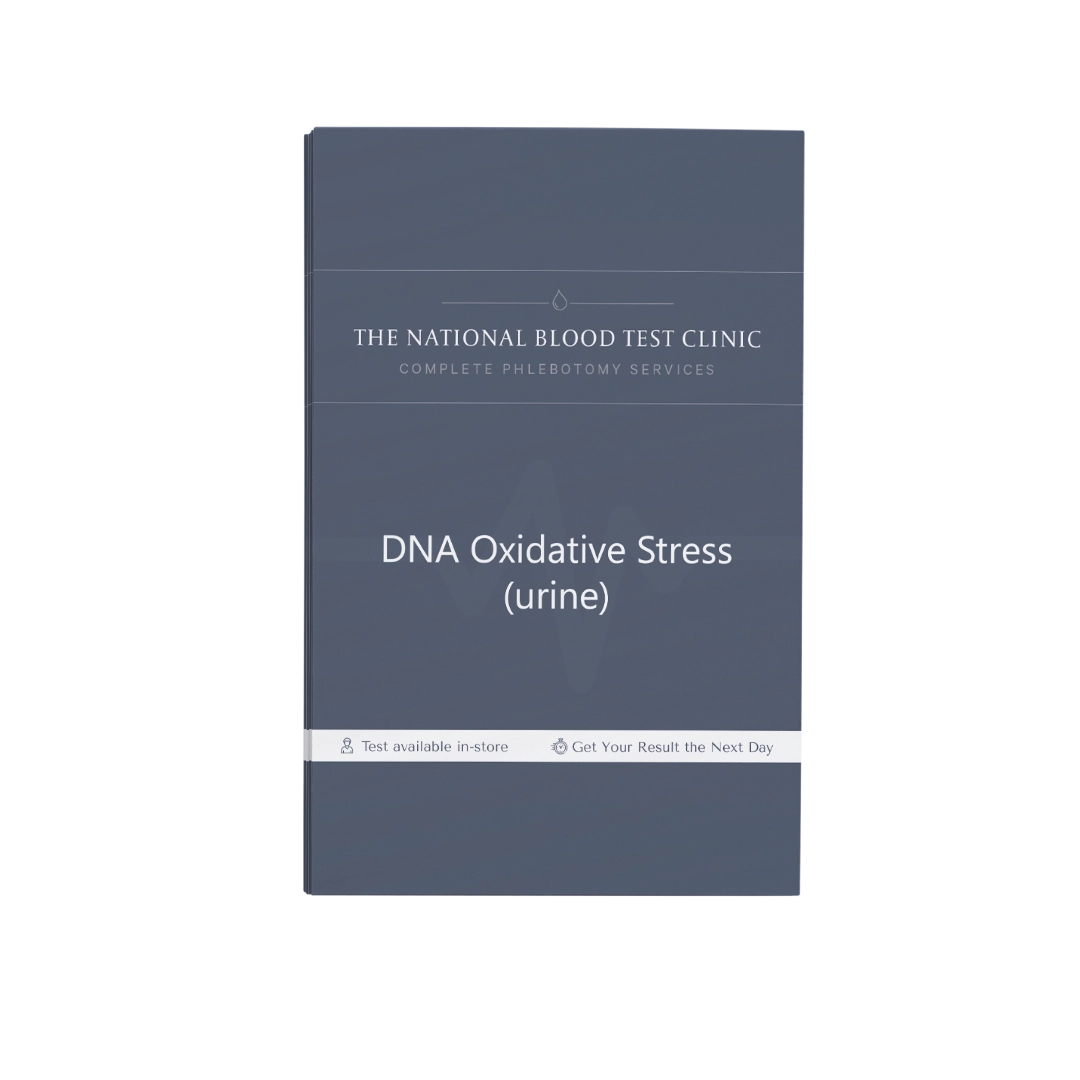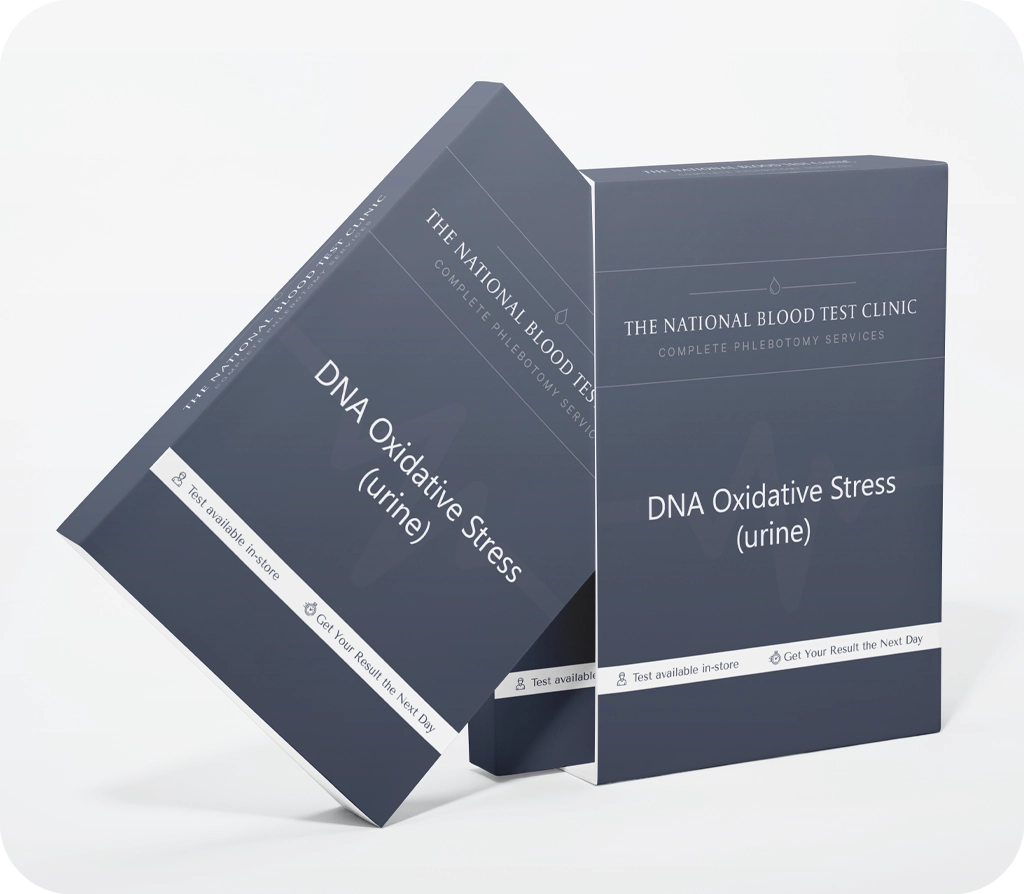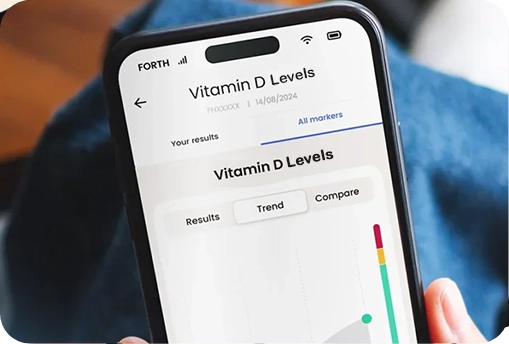My Store
DNA Oxidative Stress Profile (Urine)
DNA Oxidative Stress Profile (Urine)
SKU:DOD
Persistent fatigue, accelerated ageing, or unexplained health issues may be linked to oxidative stress, which damages your DNA. This urine-based DNA Oxidative Stress Profile measures specific biomarkers of oxidative damage, helping identify cellular stress that could contribute to chronic disease risk. Detecting imbalances early provides valuable insights into your body’s resilience and long-term health.
Why Need DNA Oxidative Damage Test Via Urine Sample?
Oxidative stress can weaken cells, speed up ageing, and increase susceptibility to illness. Measuring oxidative DNA damage helps assess hidden health risks, monitor antioxidant status, and guide personalised lifestyle or nutritional interventions to protect cellular integrity.
What Gets Assessed?
- 8-Hydroxy-2'-Deoxyguanosine
Turnaround Time
- 11Days
100 in stock
Couldn't load pickup availability
Enter Your Details


Visit a partner clinic (+£50)
Once you've ordered your test, look out for an email from our phlebotomy partners containing information and a link to book your appointment. We'll send you everything the clinic will need to complete the sample and post it back to our labs.
Organise a Nurse Yourself
If none of the above options work for you, you can arrange your own medical professional to collect your sample. There is no additional charge for this. Once you've ordered your test, we'll send you everything you and your chosen medical professional will need to collect a sample and post it back to our labs.
How Our Test Works
-

Place Your Order
Place your order online and receive a test kit delivered to your home. You’ll need to bring this kit with you to your scheduled appointment at one of our partner blood collection clinics.
-

Attend Your Appointment
At your chosen clinic, a trained nurse or phlebotomist will collect your blood sample using the kit you bring. If a sample collection courier is not available at the site, you’ll be asked to take the sealed sample with you and post it using the prepaid packaging provided.
-

Receive Your Results
Once your results are ready, you’ll receive an email notification to log in and view them securely via your private portal. Please note: venous blood test results are not automatically reviewed by a doctor. We recommend booking a consultation with a qualified clinician to help you interpret and understand your results fully.
FAQs
What is the purpose of the DNA Oxidative Stress Profile?
The DNA oxidative stress profile (urine test) measures markers of oxidative damage to DNA. It helps assess the balance between free radicals and antioxidant defences, providing insights into cellular health, ageing, and long-term disease risk.
Who should consider this test?
This test is recommended for individuals with chronic fatigue, inflammatory conditions, high toxin exposure, cardiovascular or neurodegenerative risk, or those interested in longevity and preventative health screening.
How is the urine sample collected?
The test requires a simple urine sample, which is analysed in a specialised laboratory for biomarkers of oxidative DNA damage. This non-invasive method makes it a convenient way to evaluate oxidative stress.
Can lifestyle affect oxidative stress levels?
Yes. Diet quality, stress, smoking, alcohol, toxin exposure, exercise, and overall lifestyle choices can all influence oxidative stress and antioxidant capacity. Improvements in these areas can reduce oxidative damage over time.
How can the results of this test help?
Results guide personalised health strategies, including antioxidant-rich nutrition, targeted supplementation (such as vitamins C and E, CoQ10, or polyphenols), detoxification support, and lifestyle modifications to restore cellular balance and protect DNA.
Subscribe to our emails
Be the first to know about new collections and exclusive offers.





